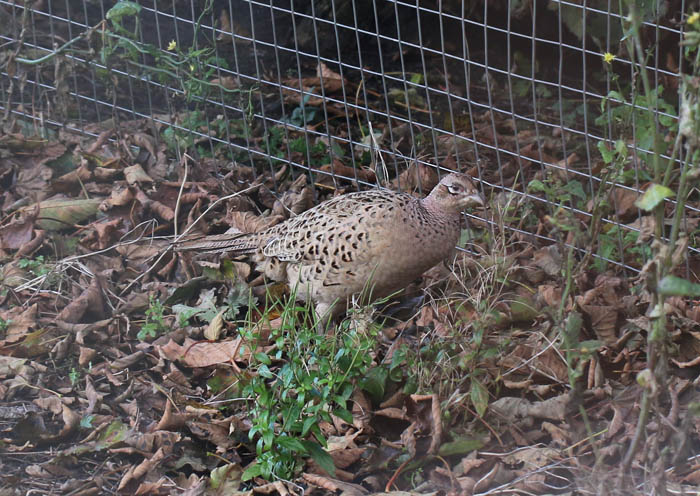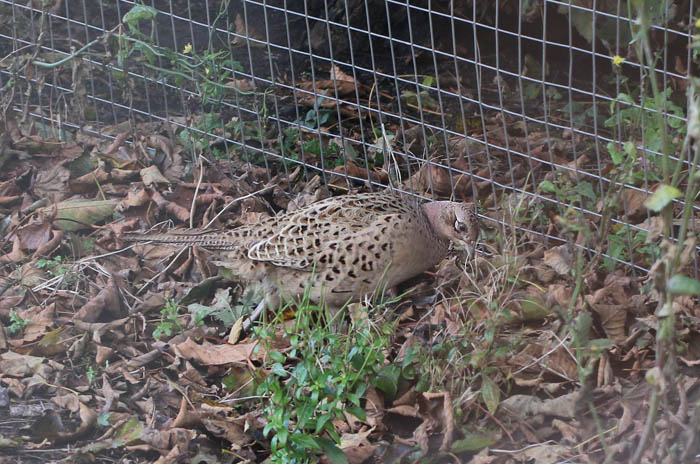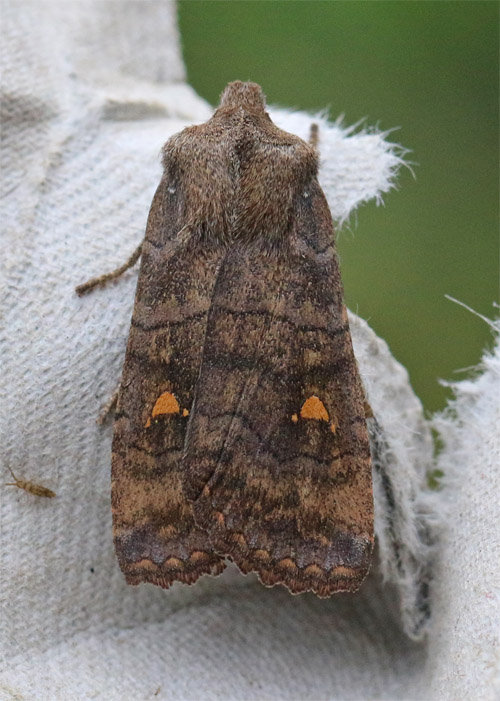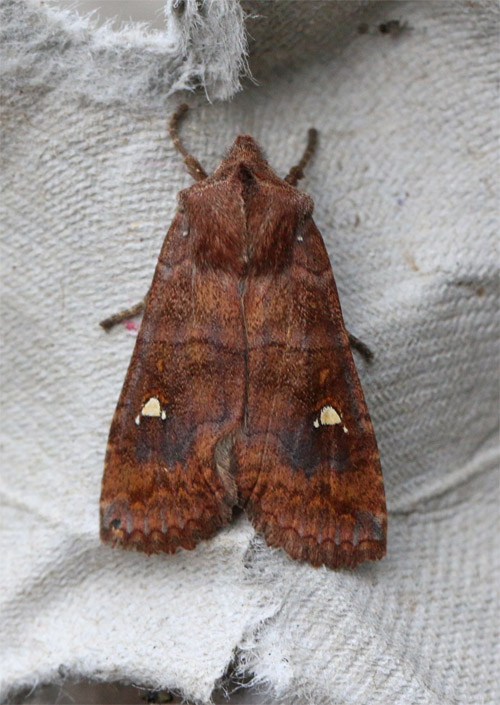Page 81 of 89
wildlife in Stevenston
Posted: Sun Oct 01, 2017 4:10 pm
by 5siamese7
Spiders are more evident in people's houses at this time of year. They come into our homes to breed. Outside their webs are everywhere. In my minds eye I can remember autumn mornings when the path that ran parallel to the old master gott at the Ardeer quarry was a mass of spider webs that shimmered in the sun and in early evening a barn owl would follow the path looking for mice. If you don't want spiders in your house buy a cat they love to eat them and will hunt them down. This morning in rainy old Stevenston a huge spider was in the lobby and could set off one off the IR sensor so I carefully put it outside. I kind of like them and to kill them is said to bring bad luck. The spider in your photo Iain looks pregnant.
Re: Wildlife in Stevenston
Posted: Mon Oct 02, 2017 5:28 am
by Vivc113
I found dead ones yesterday, one attached to an old yellow umbrella whilst I was clearing stuff out.
Gross.
Re: Wildlife in Stevenston
Posted: Thu Oct 12, 2017 7:46 pm
by iain
I was surprised to see this Pheasant feeding in the Ardeer Thistle grounds a few days ago. I’ve noticed a distinct increase in Pheasants around Ardeer over the past 2 or 3 years. I’m guessing that the barley fields at Ardeer Mains are attracting them into the area – or perhaps there are just more being released locally.


Re: Wildlife in Stevenston
Posted: Thu Oct 12, 2017 8:43 pm
by 5siamese7
Interesting, it has probably come from the Blair estate. Little barley is now grown around the loch or at Auchenkist. Birds are good at seeking out food sources and now that there is little danger from humans they are widening their areas. Don't think there will be much barley left but eating green shoots will also be fine.
Re: Wildlife in Stevenston
Posted: Thu Nov 02, 2017 4:34 pm
by 5siamese7
The front bedroom still has an old grate. Today I found a queen wasp which must have come down the lum. It was a big bugger but I decided to release it outdoors. I carefully caught it with a dish cloth and off she flew. A lot of folk would have killed it probably through fear but no I,ve always had a soft spot for wasps. I know I've mentioned this before but my aunt who lived in the countryside had wasp nests in her kitchen and she would open the window for them so they had access and wasn't stung. I believe the wasps relied on her and hence didn't sting her.
Re: Wildlife in Stevenston
Posted: Thu Nov 02, 2017 7:21 pm
by John Donnelly
A question for Iain.
Isn't it a bit late for queen wasps to be about?
JD.
Re: Wildlife in Stevenston
Posted: Thu Nov 02, 2017 7:29 pm
by 5siamese7
With our changing climate all sorts of beasties no longer exhibit previous behaviour. Mind you some are still consistent.
Re: Wildlife in Stevenston
Posted: Thu Nov 02, 2017 8:27 pm
by michaelm
John Donnelly wrote: ↑Thu Nov 02, 2017 7:21 pm
A question for Iain.
Isn't it a bit late for queen wasps to be about?
JD.
JD, maybe you should have posed that question to 5siamese7, as it was obviously his post you were referring to.

Re: Wildlife in Stevenston
Posted: Fri Nov 03, 2017 6:55 pm
by iain
Hi JD, yes and no. Yes, in that most queen wasps have already started hibernating; no, in that queen wasps are reported in every month of the year (November though is the last month in which it’s not unusual to see a Queen or a worker during ‘warm’, sunny weather). The reason queens are encountered throughout the year is that, like quite a few other insect hibernators, they sometimes prematurely emerge in the middle of winter if there’s an unusually warm spell. As 5siamese7 points out, as the climate warms there’s an increasing tendency for insects to be active during the cooler months.
Below are two photos of the Satellite moth, which generally emerges in October and hibernates until March, but which I’ve found at Ardeer Quarry in mid-winter when it’s unseasonably mild. I’m perhaps stating the obvious, but it’s called The Satellite because of the two small satellite dots bordering each wing spot.


Re: Wildlife in Stevenston
Posted: Sat Nov 04, 2017 12:16 pm
by John Donnelly
Thanks Iain.
It raises another question.
Are naturalists noticing any significant changes in the habits of insects, particularly in your own experience in the West of Scotland.
JD.
Re: Wildlife in Stevenston
Posted: Sat Nov 04, 2017 2:49 pm
by iain
JD, I find that naturalists talk relatively little about changes in habits such as earlier emergence/later hibernation, etc. One reason for this is because, unless one is analysing data statistically, it’s quite difficult to subjectively gauge long-term trends in insect habits, because they vary so much from year to year and decade to decade (i.e. there’s lots of ‘noise’ in the data) owing to random differences in weather patterns.
Instead, naturalists tend to talk more about a) declines in biomass and species diversity and b) changes in the geographical range of species. For example, naturalists are obsessing at the moment over the recently published paper that suggests that the number of individual insects on German nature reserves has dropped by 80% since the 1980s. Similarly, perhaps the most common observation made by amateur entomologists – and one I can relate to – is the drop in insect numbers over the past few decades as evidenced by the fact that if you left your bathroom window open 30 years ago, you’d be inundated by moths and ‘daddy long-legs’, whereas nowadays you find relatively few if any.
Re: Wildlife in Stevenston
Posted: Sat Nov 04, 2017 3:14 pm
by 5siamese7
A good response and I hope JD is perhaps encouraged by this to take more of an interest in entomology on his own.



